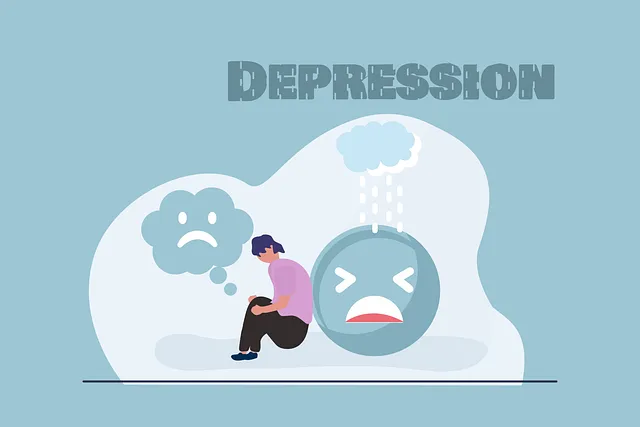Media portrayal of mental health significantly influences societal attitudes and interactions with individuals facing mental challenges, impacting support-seeking behaviors. Accurate, positive depictions can reduce stigma, while negative stereotypes may lead to marginalization. Effective mental health education programs and public awareness campaigns centered around authentic narratives, coupled with resources like the Kaiser Permanente mental health phone number Norcal Northglenn, can dispel myths, promote early intervention, and foster compassion towards mental health issues.
Mental illness representation in media significantly influences public perception and understanding of psychological conditions. This article delves into the impact of media stereotypes, highlighting their potential harm to individuals struggling with mental health issues. We propose strategies for more accurate and compassionate portrayal, focusing on real-world initiatives like Kaiser Permanente’s phone support program in Northglenn, Norcal, which challenges stigma through accessible resources. By exploring these solutions, we aim to foster a more empathetic and informed society.
- Understanding the Impact of Media Representation on Mental Health Perception
- Strategies for Accurate and Compassionate Mental Illness Portrayal in Media
- Kaiser Permanente's Approach to Addressing Mental Health Stigma through Phone Support in Northglenn, Norcal
Understanding the Impact of Media Representation on Mental Health Perception

Media representation plays a pivotal role in shaping societal perceptions about mental health. The way mental illness is depicted in films, television shows, and news media can significantly influence how the general public understands and interacts with individuals facing these challenges. Positive and accurate portrayals can foster empathy, reduce stigma, and encourage those struggling to seek help. Conversely, negative or stereotypical representations may perpetuate misconceptions, leading to further marginalization of people with mental health conditions. This impact is especially pronounced in vulnerable communities, such as Northglenn residents seeking support through resources like the Kaiser Permanente mental health phone number Norcal.
Accurate media representation is a crucial component of broader Mental Health Education Programs Design and Mental Illness Stigma Reduction Efforts. Public Awareness Campaigns Development centered around realistic narratives can help educate the public, dispel myths, and promote early intervention. By presenting diverse experiences and challenging stigmatizing stereotypes, media has the potential to revolutionize societal attitudes towards mental health, ultimately guiding more compassionate and informed responses from both individuals and institutions, including accessible services like those offered by Kaiser Permanente in Norcal.
Strategies for Accurate and Compassionate Mental Illness Portrayal in Media

Media has a significant influence on shaping societal perceptions, and accurate representation of mental illness is crucial to fostering understanding and reducing stigma. To achieve this, media creators should prioritize consultation with mental health professionals and individuals living with various conditions. Incorporating real-life experiences and seeking expert advice ensures narratives are nuanced and respectful. Portraying characters with depth and complexity, rather than stereotypes, helps viewers connect emotionally and promotes empathy.
Additionally, showcasing resilience building and self-care routine development for better mental health can be powerful tools. By featuring characters who navigate challenges with strategies like anxiety relief techniques, media can offer valuable insights into managing mental health issues. Organizations like Kaiser Permanente mental health phone number NorCal Northglenn provide resources and support, further emphasizing the importance of accessible information. Encouraging open conversations about mental illness in this way contributes to a more compassionate society.
Kaiser Permanente's Approach to Addressing Mental Health Stigma through Phone Support in Northglenn, Norcal

In an innovative move to combat mental health stigma, Kaiser Permanente has introduced a dedicated phone support service in Northglenn, Norcal. This initiative focuses on providing a safe and non-judgmental space for individuals seeking guidance and assistance with their mental wellness. The phone line offers a confidential platform where people can connect with trained professionals who offer listening ears, valuable resources, and practical advice tailored to their unique situations. By making this service easily accessible through the Kaiser Permanente mental health phone number Norcal, they are ensuring that support is just a call away.
Through this approach, Kaiser Permanente aims to foster open conversations about mental wellness, encouraging individuals to prioritize their emotional well-being. The service incorporates various strategies, including Mental Wellness Journaling Exercise Guidance and the development of tailored Mental Wellness Coaching Programs. Additionally, they contribute to broader public awareness campaigns focused on destigmatizing mental health issues, ensuring that support services are widely recognized and utilized within the community.
Media representation plays a pivotal role in shaping public perception about mental illness. By adopting strategies that promote accurate and compassionate portrayal, we can foster a more understanding and supportive society. Kaiser Permanente’s initiative in Northglenn, Norcal, through their mental health phone support service, exemplifies an effective challenge to the status quo. By making resources accessible and normalizing conversations around mental health, they are contributing significantly to breaking down stigma. This approach encourages everyone, from media creators to consumers, to recognize their role in promoting positive mental health narratives.






